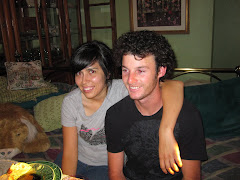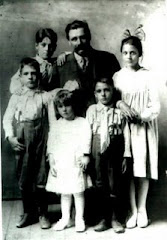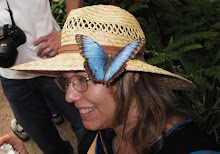Events on Nisan 13 and 14
Please read: Matthew 26:17-19; Mark 14:12-16;
Luke 22:7-13; John 13:1-5; 14:1-3
Luke 22:7-13; John 13:1-5; 14:1-3
It is now Nisan 13, final preparations will need to be made for the Passover. The celebration will begin at sundown. That is when the Passover lamb must be slaughtered and then roasted whole. Where will they celebrate the feast, and who will make the preparations?
Jesus assigns Peter and John to get things ready, saying: "Go and get the passover ready for us to eat." "Where do you want us to get it ready?" they ask.
"When you enter into the city," Jesus explains, "a man carrying an earthenware vessel of water will meet you. Follow him into the house into which he enters. And you must say to the landlord of the house. 'The Teacher says to you: "Where is the guest room in which I may eat the passover with my disciples?" And that man will show you a large upper room furnished. Get it ready there."

So the two of them see to it that the lamb is ready and that all the other arrangements are made to care for the needs of the 13 Passover celebrants, Jesus and his 12 apostles. - Matthew 26:17-19; Mark 14:12-16; Luke 22:7-13.
The sun is sinking on the horizon as Jesus and the ten other apostles start their journey down the Mount of Olives to meet up with Peter and John in Jerusalem. This is Jesus' last daytime view of the city from this mountain until after his resurrection. Soon Jesus and his party arrive in the city and make their way to the home where they will celebrate the Passover. At sundown, according to the Jewish calender, it is now Nisan 14th. They climb the stairs to the large upper room, where they find all preparations made for their private celebration of the Passover. Jesus has looked forward to this occasion, as he says: "I have greatly desired to eat this passover with you before I suffer." (Luke 22:15) -John 13:1
Sometime during the course of the meal, Jesus gets up, lays aside his outer garments, takes a towel, and fills a basin with water. Ordinarily, a host would see to it that a guest's feet were washed. But since on this occasion no host is present, Jesus cares for this personal service. Any one of the apostles could have seized the opportunity to do it; yet, apparently because some rivalry still exists among them, no one does. Now they are embarrassed as Jesus begins to wash their feet. When Jesus has washed the feet of all 12, including the feet of his betrayer, Judas, he puts his outer garments on and reclines at the table again. Jesus explains: "I set the pattern for you, that, just as I did to you. you should do also. Most truly I say to you, A slave is not greater than his master, nor is one that is sent forth greater than the one that sent him. If you know these things, happy you are if you do them." (John 13:15-17) What a beautiful lesson in humble service! The apostles should not be seeking the first place, thinking that they are so important that others should always serve them. They need to follow the pattern set by Jesus. They need to develop the willingness to serve without partiality, no matter how menial or unpleasant the task may be. -John 13: 2-5

After Judas is dismissed Jesus institutes the new covenant with his faithful 11 apostles. At Mark 14:22-24 it states: And as they continued eating, he took a loaf, said a blessing, broke it and gave it to them, and said: "Take it, this means my body." And taking a cup, he offered thanks and gave it to them, and they all drank out of it. And he said to them: "This means my 'blood' of the covenant, which is to be poured out in behalf of many." (Mark 14:22-24; Luke 22:28-30) So this is, in fact, a memorial of Jesus' death. Each year on Nisan 14 it is to be repeated, as Jesus says, in remembrance of him. It will call to memory what Jesus and his heavenly Father have done to provide escape for humankind from the condemnation of death. For the Jews who become Christ's followers the celebration will replace the Passover.
The new covenant, which is made operative by Jesus' shed blood, replaces the old Law covenant. It is mediated by Jesus Christ between two parties -on the one hand, Jehovah God, and on the other, 144,000 spirit-begotten Christians. Besides providing for the forgiveness of sins, the covenant allows for the formation of a heavenly nation of king-priests. (Compare: Rev 5:9, 10; 14:1-3)
Jesus continues to teach them and prepare them for what lies ahead. He explains, "All of you will be stumbled in connection with me on this night."- Matthew 26:31. But gently Jesus encourages them with the words, " Do not let your hearts be troubled. Exercise faith in God, exercise faith also in me. In the house of my Father there are many abodes. Otherwise, I would have told you, because I am going my way to prepare a place for you. Also, it I go my way and prepare a place for you, I am coming again and will receive you home to myself, that where I am you also may be." Yes, Jesus is preparing a place for these faithful spirit-anointed Christians, in heaven, to be kings and priests, along with Jesus in the promised heavenly kingdom. What blessings the earth will receive under this kingdom rule! -John 14:1-3
Yes, Jesus spoke intimately with his faithful friends before going out to the garden of Gethsemane, teaching them and preparing them for the trials about to come. (John 13:34,35; chapters 14,15,16,17)

Jesus assigns Peter and John to get things ready, saying: "Go and get the passover ready for us to eat." "Where do you want us to get it ready?" they ask.
"When you enter into the city," Jesus explains, "a man carrying an earthenware vessel of water will meet you. Follow him into the house into which he enters. And you must say to the landlord of the house. 'The Teacher says to you: "Where is the guest room in which I may eat the passover with my disciples?" And that man will show you a large upper room furnished. Get it ready there."

So the two of them see to it that the lamb is ready and that all the other arrangements are made to care for the needs of the 13 Passover celebrants, Jesus and his 12 apostles. - Matthew 26:17-19; Mark 14:12-16; Luke 22:7-13.
The sun is sinking on the horizon as Jesus and the ten other apostles start their journey down the Mount of Olives to meet up with Peter and John in Jerusalem. This is Jesus' last daytime view of the city from this mountain until after his resurrection. Soon Jesus and his party arrive in the city and make their way to the home where they will celebrate the Passover. At sundown, according to the Jewish calender, it is now Nisan 14th. They climb the stairs to the large upper room, where they find all preparations made for their private celebration of the Passover. Jesus has looked forward to this occasion, as he says: "I have greatly desired to eat this passover with you before I suffer." (Luke 22:15) -John 13:1
Sometime during the course of the meal, Jesus gets up, lays aside his outer garments, takes a towel, and fills a basin with water. Ordinarily, a host would see to it that a guest's feet were washed. But since on this occasion no host is present, Jesus cares for this personal service. Any one of the apostles could have seized the opportunity to do it; yet, apparently because some rivalry still exists among them, no one does. Now they are embarrassed as Jesus begins to wash their feet. When Jesus has washed the feet of all 12, including the feet of his betrayer, Judas, he puts his outer garments on and reclines at the table again. Jesus explains: "I set the pattern for you, that, just as I did to you. you should do also. Most truly I say to you, A slave is not greater than his master, nor is one that is sent forth greater than the one that sent him. If you know these things, happy you are if you do them." (John 13:15-17) What a beautiful lesson in humble service! The apostles should not be seeking the first place, thinking that they are so important that others should always serve them. They need to follow the pattern set by Jesus. They need to develop the willingness to serve without partiality, no matter how menial or unpleasant the task may be. -John 13: 2-5

After Judas is dismissed Jesus institutes the new covenant with his faithful 11 apostles. At Mark 14:22-24 it states: And as they continued eating, he took a loaf, said a blessing, broke it and gave it to them, and said: "Take it, this means my body." And taking a cup, he offered thanks and gave it to them, and they all drank out of it. And he said to them: "This means my 'blood' of the covenant, which is to be poured out in behalf of many." (Mark 14:22-24; Luke 22:28-30) So this is, in fact, a memorial of Jesus' death. Each year on Nisan 14 it is to be repeated, as Jesus says, in remembrance of him. It will call to memory what Jesus and his heavenly Father have done to provide escape for humankind from the condemnation of death. For the Jews who become Christ's followers the celebration will replace the Passover.
The new covenant, which is made operative by Jesus' shed blood, replaces the old Law covenant. It is mediated by Jesus Christ between two parties -on the one hand, Jehovah God, and on the other, 144,000 spirit-begotten Christians. Besides providing for the forgiveness of sins, the covenant allows for the formation of a heavenly nation of king-priests. (Compare: Rev 5:9, 10; 14:1-3)
Jesus continues to teach them and prepare them for what lies ahead. He explains, "All of you will be stumbled in connection with me on this night."- Matthew 26:31. But gently Jesus encourages them with the words, " Do not let your hearts be troubled. Exercise faith in God, exercise faith also in me. In the house of my Father there are many abodes. Otherwise, I would have told you, because I am going my way to prepare a place for you. Also, it I go my way and prepare a place for you, I am coming again and will receive you home to myself, that where I am you also may be." Yes, Jesus is preparing a place for these faithful spirit-anointed Christians, in heaven, to be kings and priests, along with Jesus in the promised heavenly kingdom. What blessings the earth will receive under this kingdom rule! -John 14:1-3
Yes, Jesus spoke intimately with his faithful friends before going out to the garden of Gethsemane, teaching them and preparing them for the trials about to come. (John 13:34,35; chapters 14,15,16,17)

Jesus truly loved them to the end!-John 13:1

































































































